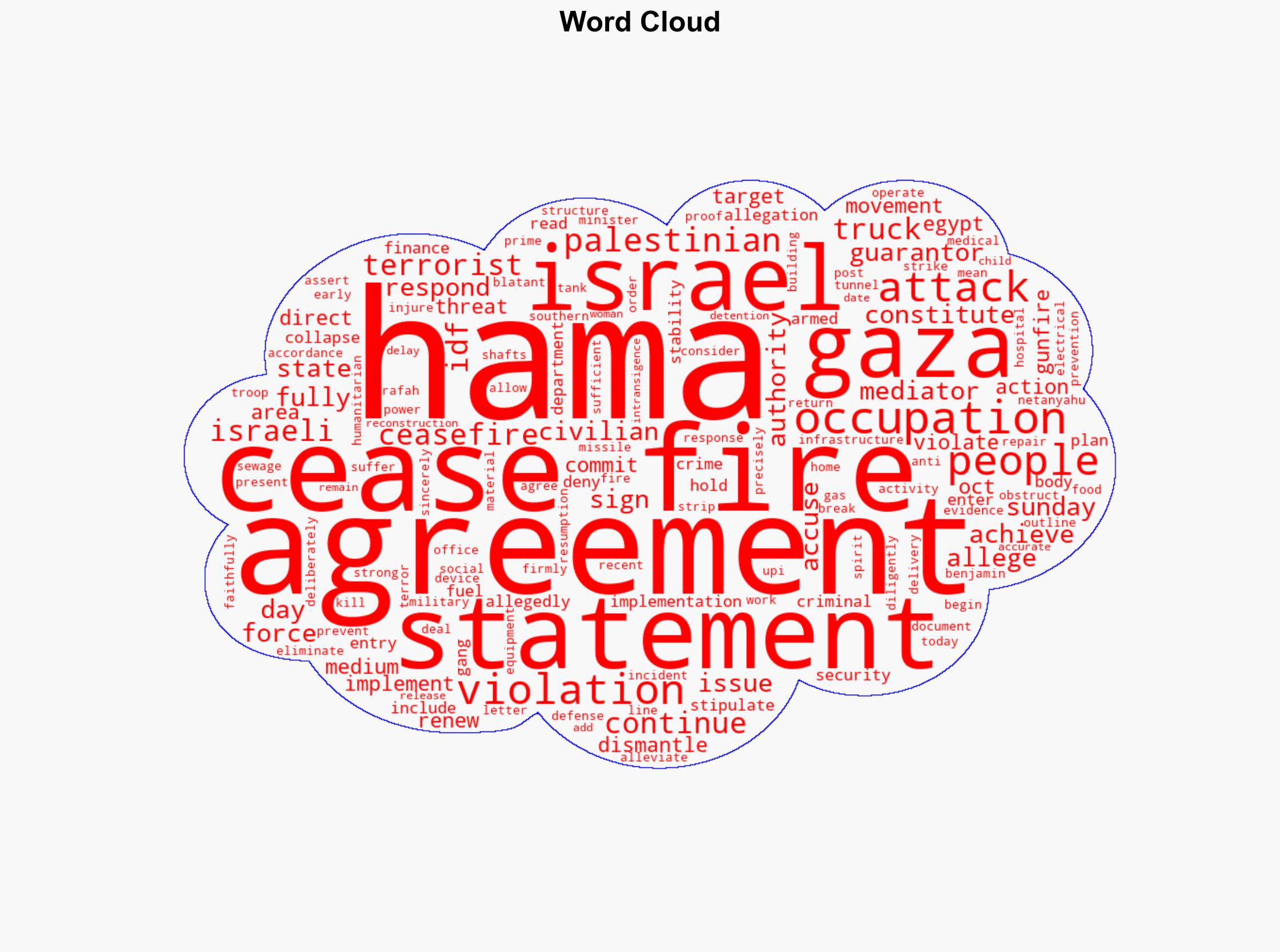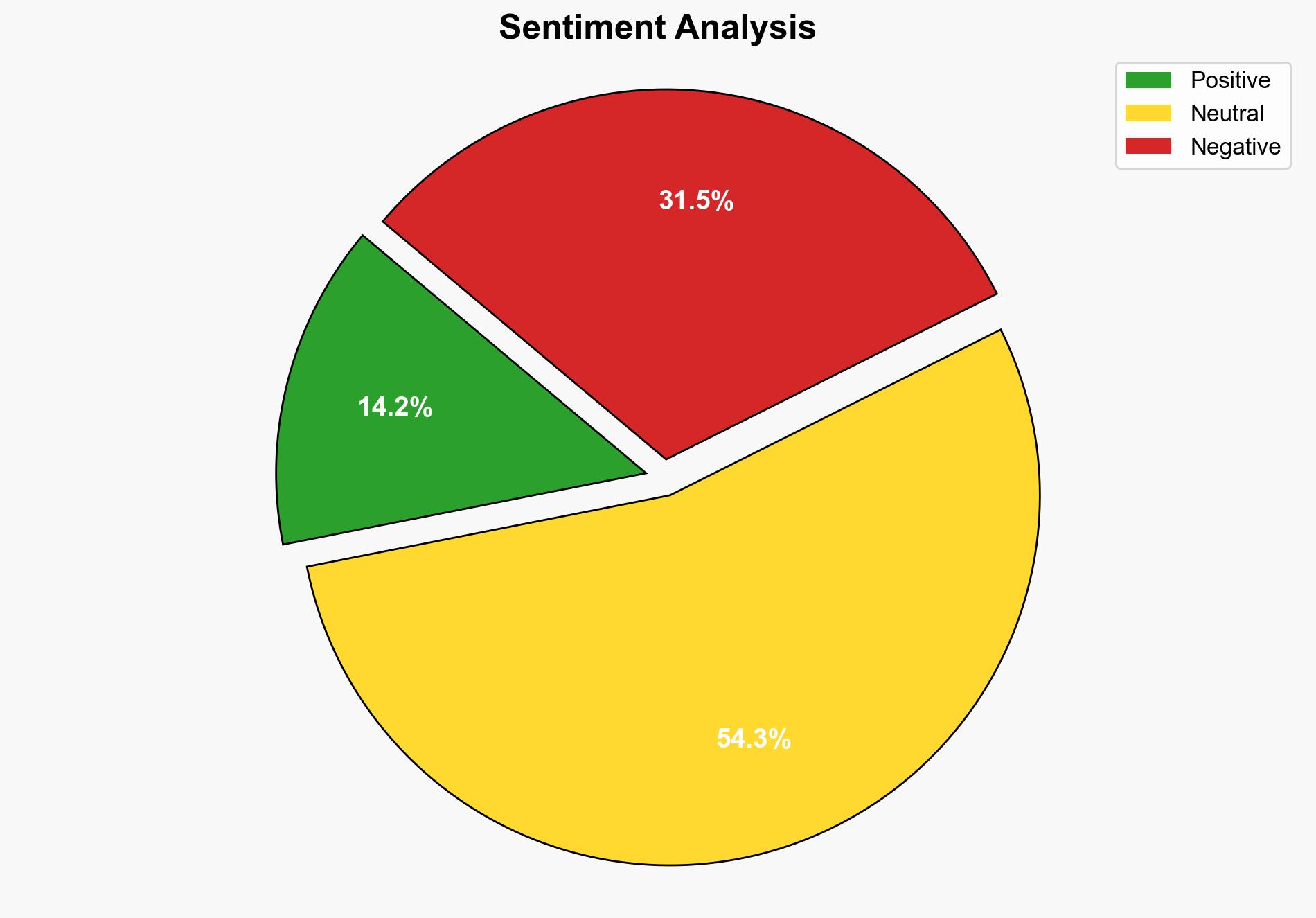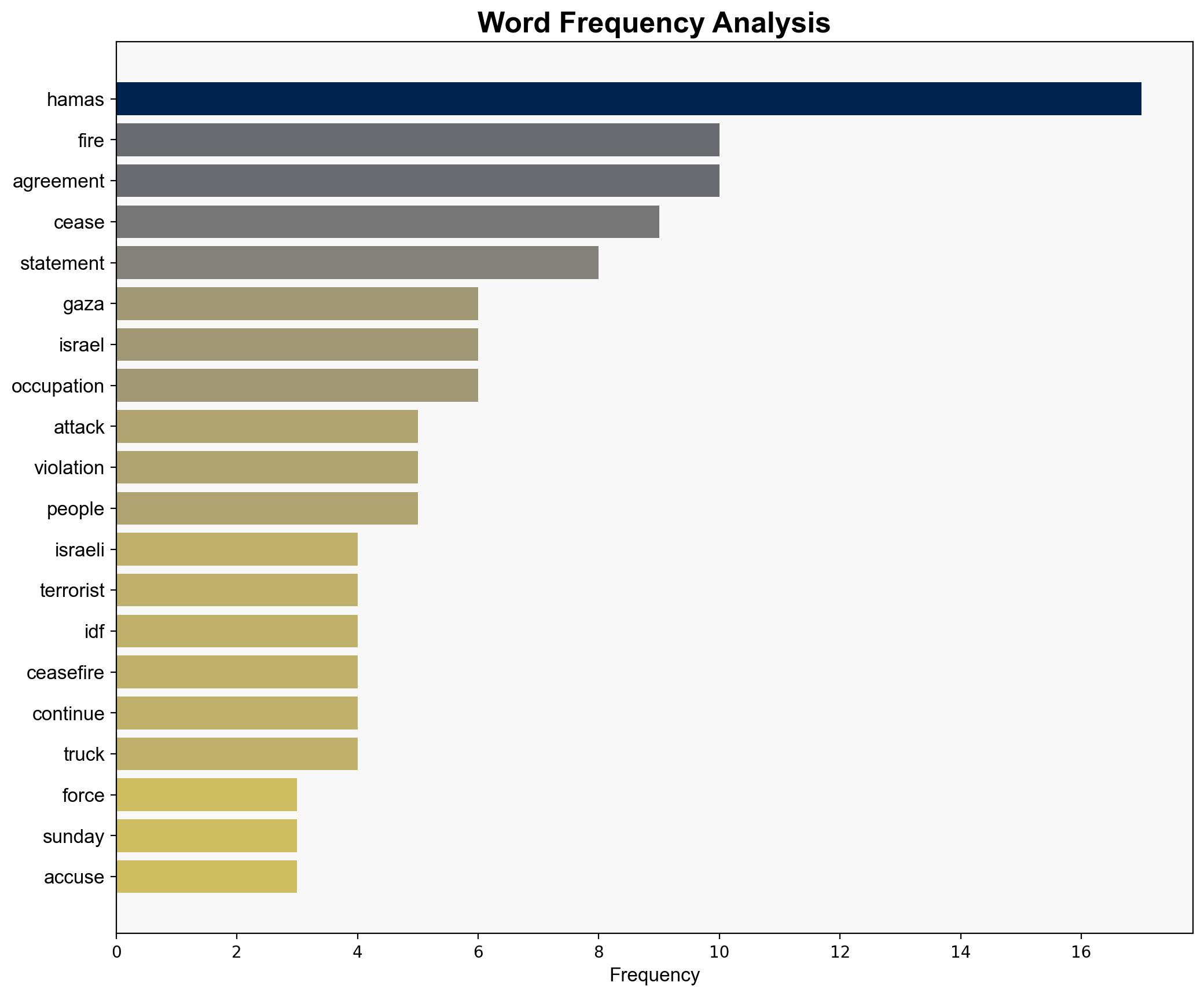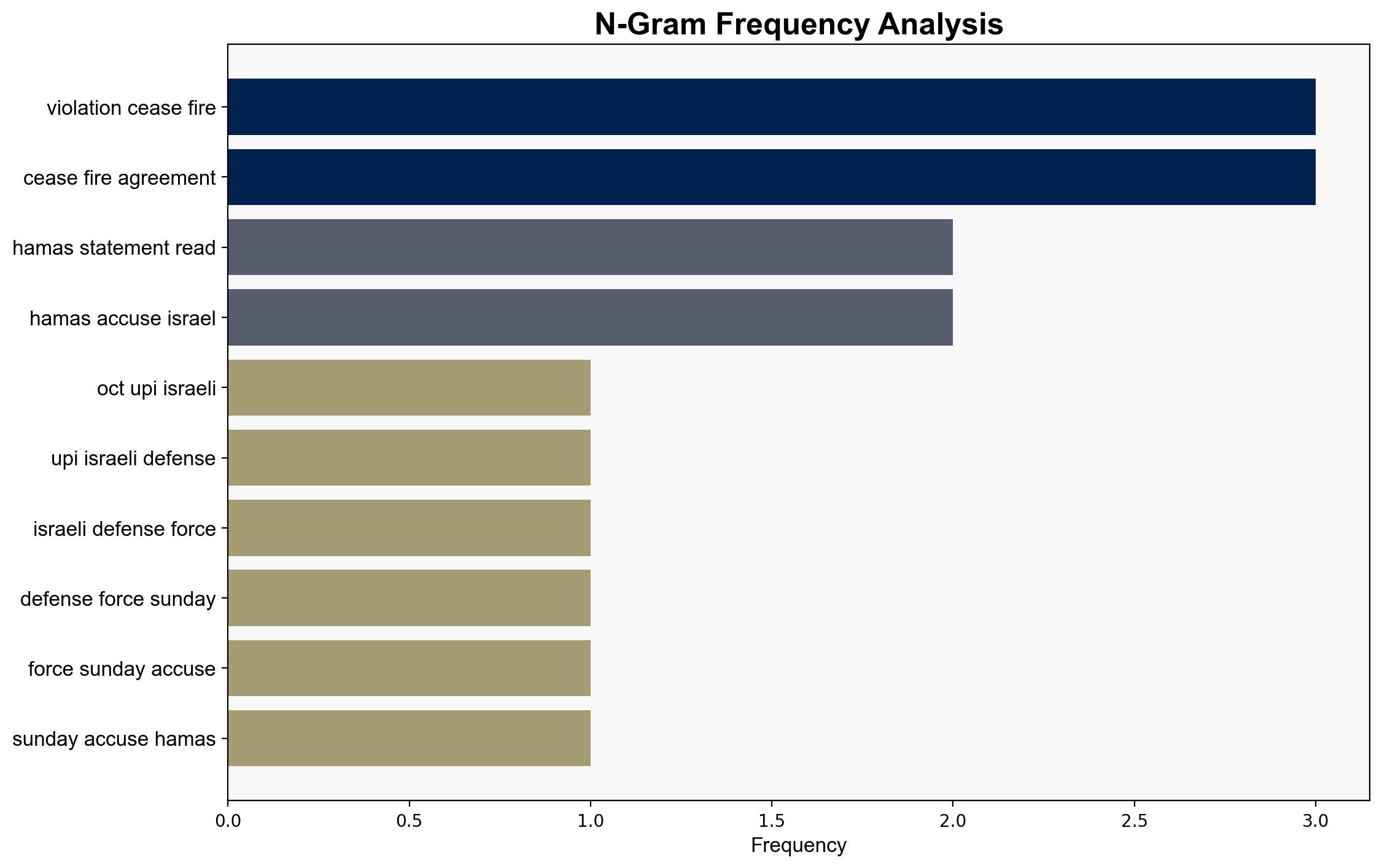Israel renews Gaza attacks accuses Hamas of breaking ceasefire – UPI.com
Published on: 2025-10-19
Intelligence Report: Israel renews Gaza attacks accuses Hamas of breaking ceasefire – UPI.com
1. BLUF (Bottom Line Up Front)
The most supported hypothesis is that both Israel and Hamas are engaging in strategic posturing to gain leverage in ceasefire negotiations, with a moderate confidence level. The recommended action is to increase diplomatic engagement through neutral mediators to ensure compliance with the ceasefire and prevent further escalation.
2. Competing Hypotheses
1. **Hypothesis A**: Israel’s renewed attacks are a justified response to Hamas’s violation of the ceasefire agreement. This is supported by Israel’s claims of anti-tank missile fire and other hostile actions by Hamas.
2. **Hypothesis B**: Hamas has adhered to the ceasefire, and Israel’s actions are preemptive measures to maintain a strategic advantage. This is supported by Hamas’s statements of compliance and accusations against Israel for violating the agreement.
Using ACH 2.0, both hypotheses have supporting evidence, but Hypothesis B is slightly more supported due to the lack of independent verification of Israel’s claims and the detailed counterclaims by Hamas.
3. Key Assumptions and Red Flags
– **Assumptions**:
– Hypothesis A assumes that Israel’s intelligence on Hamas’s actions is accurate and unbiased.
– Hypothesis B assumes that Hamas’s statements of compliance are truthful and not propaganda.
– **Red Flags**:
– Lack of independent verification of claims from either side.
– Potential cognitive bias in interpreting actions as violations based on historical animosity.
– Discrepancies in reported incidents and casualties.
4. Implications and Strategic Risks
– **Escalation Risk**: Continued hostilities could lead to a broader conflict, drawing in regional actors and complicating international relations.
– **Humanitarian Impact**: Prolonged conflict may exacerbate humanitarian crises in Gaza, affecting civilian populations and international aid efforts.
– **Geopolitical Tensions**: Increased tensions could strain relationships between Israel and neighboring countries, impacting regional stability.
5. Recommendations and Outlook
- Engage neutral international mediators to verify compliance and facilitate dialogue between Israel and Hamas.
- Enhance intelligence-sharing mechanisms to provide independent verification of ceasefire violations.
- Scenario Projections:
– **Best Case**: Successful mediation leads to a reinforced ceasefire and reduced hostilities.
– **Worst Case**: Escalation into a full-scale conflict involving regional actors.
– **Most Likely**: Continued sporadic violations with intermittent diplomatic interventions.
6. Key Individuals and Entities
– Benjamin Netanyahu
– Hamas leadership
– Mediators from Egypt, Qatar, and Turkey
7. Thematic Tags
national security threats, cybersecurity, counter-terrorism, regional focus




